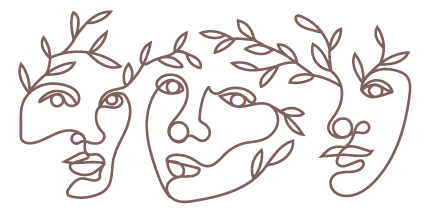Hoarding & Mental Health
Original art by Briaanna Chiu
Hoarding. It’s the impulsive desire to keep something that really belongs in the trash. It’s the way you go out to get ice cream and decide to take home the plastic spoons they give you even though you know you prefer using metal ones. It’s the way your favorite jeans get a big, unmendable hole in them but you stuff them back in your closet anyway.
Hoarding. It’s this, and it’s more. It’s a disorder, and there’s stigma attached to it.
A disorder refers to a condition that disrupts or impairs a person’s normal day-to-day functioning. A psychiatrist knows infinitely better than I do when something should be diagnosed as a disorder, but still, you can’t help but wonder how the desire to keep something can be considered an impairment in a person’s daily life.
But the culmination of unnecessary objects is detrimental, both physically and mentally. If you find yourself tripping over things in your home, eventually you’ll injure yourself. Piles and walls of objects are a serious fire hazard. And the mental repercussions, which are historically not talked about as often, involve conflict with family and friends, anxiety about throwing things away, and isolation or shame because of an untidy home.
This inclination that people have for feeling ashamed of themselves is what we are fighting against when we urge people to love themselves, to take care of themselves, and to accept themselves. But it can be difficult when there is already a widely-accepted notion of what is normal. Anyone who deviates from “normal” becomes hyper-fixated on the fact that they are wrong in some way, and they no longer think about what it takes to be healthy, either physically, mentally, or both.
Hoarding disorder can be a symptom of another disorder, including obsessive compulsive personality disorder (OCPD), obsessive compulsive disorder (OCD), attention deficit hyperactivity disorder (ADHD), and depression. When we take on treating our mental health, we should take on all of it, not just what is most often talked about. Someone who struggles with hoarding might not be aware that they experience OCD, anxiety, or depression, just because they’ve been led to believe they live a shameful lifestyle.
People are beginning to open up about their mental health, which is a wonderful thing to see. But here’s hoping something as nitty and gritty as a trash-filled home doesn’t repel mental health advocates from recognizing when someone needs help and acceptance.
I think part of why people hoard is financial insecurity. You don’t want to throw something away because you spent money on it, and you don’t feel comfortable throwing money away. You see an opportunity to buy something for cheap, and without a second thought you leap to get it, because you may need that something one day, and it’ll be more expensive the next time you see it. Financial concerns make you feel puny and not in control, but keeping apparently useful items and buying things for cheap can give you a semblance of control back.
That’s what we want. We want control of our lives. But life can so quickly get out of control.
I also think that, to a lesser degree, the environmental crisis affects the mindset of a hoarder. We hear so much about how important it is to recycle and how much trash a person produces a day, and I sometimes feel guilty throwing something away that I know has the potential to be reused. In that instance where I’m tossing something in the trash, I for some reason think I’m contributing enormously to the environmental downfall of the Earth.
It’s great to know that people care deeply about our planet and want to do whatever it takes to help it recover. But at the same time, it’s also crucial to be okay with the small steps that you’re taking. Those small steps, as little as they feel compared to the entire planet, are changing something, whether it be yourself, or someone else, or the Earth.
I think, a lot of the time, I see perfect manicured homes and associate that with someone who has their life together. Maybe they do, or maybe they don’t, but either way, they’re not what I should be focusing on. It’s important that we accept ourselves and our actions, rather than hate who we are and what we’ve done or what’s caused us to do this.
I think that’s important to mental health: understanding that you can move forward and you can move slowly. The world isn’t waiting for you. Only you are.
References:
https://adaa.org/understanding-anxiety/obsessive-compulsive-disorder-ocd/hoarding-basics
https://www.psychiatry.org/patients-families/hoarding-disorder/what-is-hoarding-disorder

